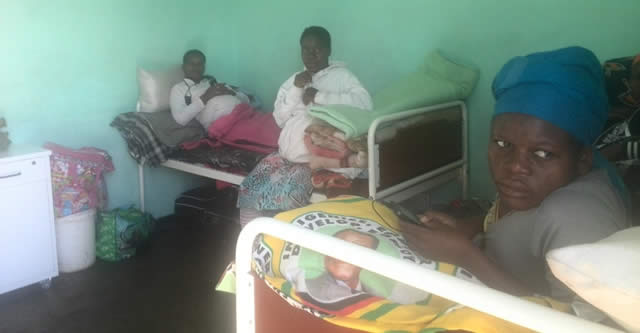Sanitary wear for women more than a rights issue

Conrad Gweru and Michelle Chifamba
Parliamentarians and policy-makers are faced with a huge task to meet the needs of every Zimbabwean from all walks of life.
Unfortunately, the country does not have adequate resources to spread across the country, hence some issues find themselves at the periphery of decision-makers’ priorities, focus and attention being given to issues of national interest such as economic recovery. Recently, legislators were faced with an equally grave issue sparking far and wide debate, that of womanhood and provision of sanitary products.
At the pivot of the subject are economic issues around production capacity of local sanitary wear producing companies and the presence of foreign produced sanitary products whose standards are not known.
As the debate rages on, a Form 3 student from Highfields High school, in Harare, Esnath Marimuka, lives in fear.
To her, the menstural period — a natural biological process — is a stressful and traumatic phase.
Without running water, limited access to appropriate and standard sanitary wear, no disposable facilities and lack of privacy in the toilets, many girls at the school as well as women and girls from around the country share Marimuka’s predicament.
The challenges they face today are not only centred around availability of sanitary wear at lower prices but also around the environment that many of these women find themselves in.
For many women in Zimbabwe, the menstrual journey is not a proud one, but that which is worth escaping — if it could be.
“It is dreadful to think of that time of the month. I hate going to school, even to travel. Many toilets come at a price — you have to pay a small fee to enter and change, while some are unhygienic, without running water or disposable facilities. It is a nightmare,” said Marimuka.
Women, who constitute at least 52 percent of the population, find themselves in terrible situations during their menstrual period yet they have to endure for the better part of their lives.
According to reports — women and girls, from poor slum communities and in rural areas make use of unhygienic products during their menstrual period.
“Instead of celebrating womanhood, the few days every month are a nightmare — humiliating and painful. This is a human rights issue which needs the government to address because we do not menstruate out of choice but we were created that way. This must not be prison,” said Leonah Madzimure from Kuwadzana.
Zimbabwe is facing acute economic stress, including the current liquidity crisis while companies are shutting down at a fast rate.
According to the Zimbabwe Congress for Trade Unions (ZCTU), at least 450 workers lose their jobs on a weekly basis.
On its knees, the country now has shifted from being a net exporter, to become a net importer of everything including- sanitary products.
According to legislatures debating in parliament, Zimbabwe is losing approximately, $US1,2billion per annum from the importation of sanitary products.
The Ministry of Industry and Commerce, says the government is worried by its failure to manufacture and export, while the Ministry of Science and Technology blames the failure by the country to raise enough capital to fund companies that can manufacture sanitary products.
“We currently have two companies that can manufacture sanitary products but we don’t have any capital,” Mrs Olivia Muchena, Minister of Science and Technology told Parliamentarians recently.
While the Millennium Development Goal (MDG 3) calls for the promotion of gender equality and women’s empowerment, the Convention on the Elimination of all Forms of Discrimination against Women (CEDAW) (1979) a legal-binding international instrument for the protection of women’s rights seeks to address the living conditions of women in rural areas.
Although Zimbabwe is a signatory of a number of various regional and international conventions aimed at improving the welfare of women, a number of women organisations feel that these conventions have not brought with them the expected benefits.
According to the Women’s Trust, the role of women should be upheld and the first thing is to remove tax of these products and the raw materials that make these products because they are not affordable for the women at grass roots.
“Sanitary products are a basic need for young girls and women. The family would buy a meal over sanitary pads because “you can make a plan”. It is as if people forget we have a monthly menstrual period this has resulted in women resorting to using cloths, cardboard, paper and leaves, this is very dangerous and could result is complications such as cancer or chemical can damage the ovaries,” said Tendai Garwe, Communications and Advocacy Officer for The Women’s Trust.








Comments